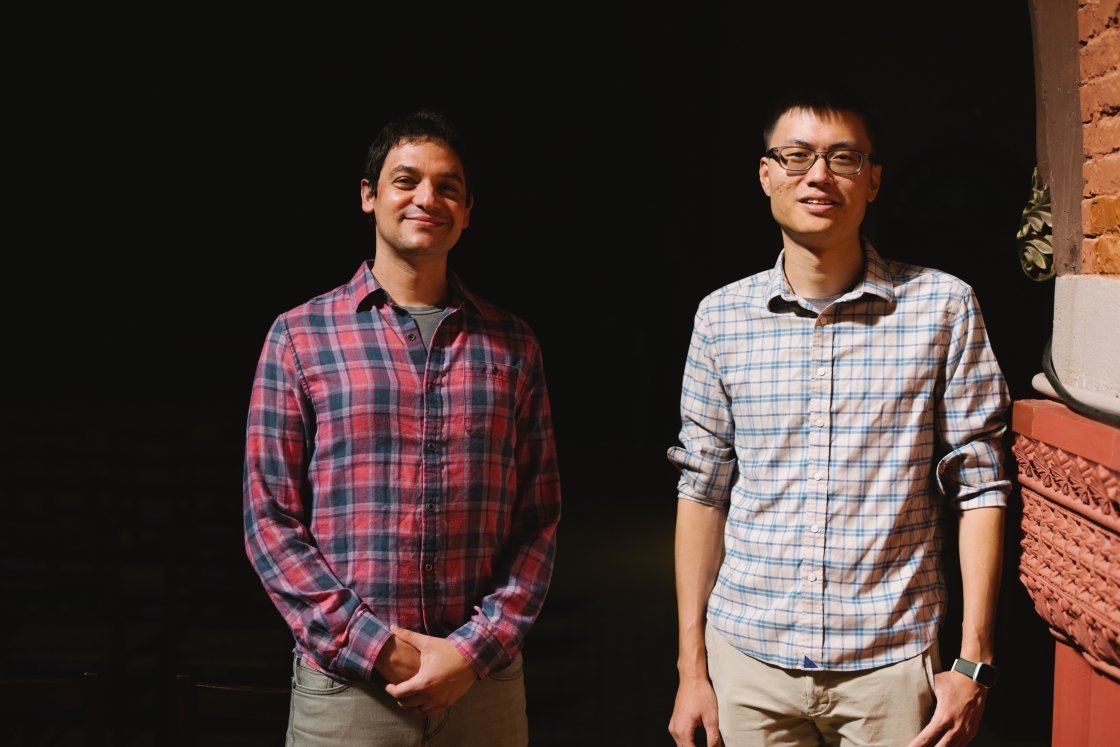HANOVER, N.H. – April 7, 2016 – Robots do many things formerly done only by humans – from bartending and farming to driving cars – but a Dartmouth researcher and his colleagues have invented a “smart” paint spray can that robotically reproduces photographs as large-scale murals.
The computerized technique, which basically spray paints a photo, isn’t likely to spawn a wave of giant graffiti, but it can be used in digital fabrication, digital and visual arts, artistic stylization and other applications.
The findings appear in the journal Computer & Graphics. A supplemental video is available. The project was a collaboration between ETH Zurich, Disney Research Zurich, Dartmouth College and Columbia University.
The “smart” spray can system is a novel twist on computer-aided painting, which originated in the early 1960s and is a well-studied subject among scientists and artists. Spray paint is affordable and easy to use, making large-scale spray painted murals common in modern urban culture. But covering walls of buildings and other large surfaces can be logistically and technically difficult even for skilled artists.
The researchers wanted to create a way to help non-artists create accurate reproductions of photographs as large-scale murals using spray painting. So, they developed a computer-aided system that uses an ordinary paint spray can, tracks the can’s position relative to the wall or canvas and recognizes what image it “wants” to paint. As the person waves the pre-programmed spray can around the canvas, the system automatically operates the spray on/off button to reproduce the specific image as a spray painting.
The prototype is fast and light-weight: it includes two webcams and QR-coded cubes for tracking, and a small actuation device for the spray can, attached via a 3D-printed mount. Paint commands are transmitted via radio directly connected to a servo-motor operating the spray nozzle. Running on a nearby computer, the real-time algorithm determines the optimal amount of paint of the current color to spray at the spray can’s tracked location. The end result is that the painting reveals itself as the user waves the can around, without the user necessarily needing to know the image beforehand.
Due to difficulty getting permission to spray paint university buildings, the researchers tested the automated painting system on large sheets of paper assembled into mural-size paintings. Though the method currently only supports painting on flat surfaces, one potential benefit of the new technique over standard printing is that it may be usable on more complicated, curved painting surfaces.
“Typically, computationally-assisted painting methods are restricted to the computer,” says co-author Wojciech Jarosz, an assistant professor of computer science at Dartmouth who previously was a senior research scientist at Disney Research Zurich. “In this research, we show that by combining computer graphics and computer vision techniques, we can bring such assistance technology to the physical world
even for this very traditional painting medium, creating a somewhat unconventional form of digital fabrication. Our assistive approach is like a modern take on ‘paint by numbers’ for spray painting. Most importantly, we wanted to maintain the aesthetic aspects of physical spray painting and the tactile experience of holding and waving a physical spray can while enabling unskilled users to create a physical piece of art.”
In addition to Jarosz, the research team consisted of Romain Prévost, Alec Jacobson and Olga Sorkine-Hornung.
Assistant Professor Wojciech Jarosz is available to comment at wojciech.k.jarosz@dartmouth.edu.

